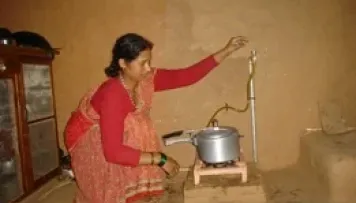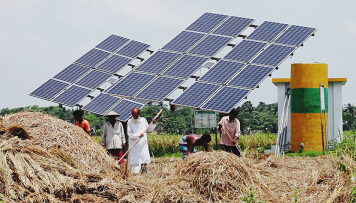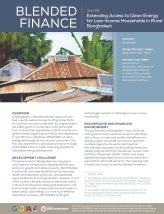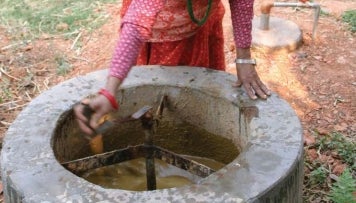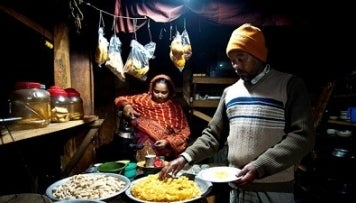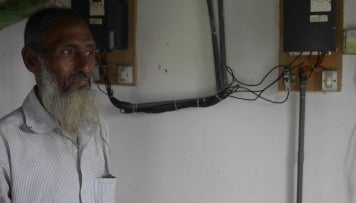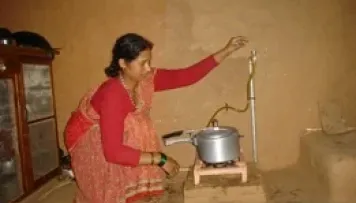
Katmandu, October 4, 2007- The Global Partnership on Output Based Aid (GPOBA) today signed a grant agreement with the Government of Nepal for US$5,000,000 that will co-finance the installation of 37,000 biogas plants under the fourth phase of the Biogas Support Program (BSP-IV). The Project will be implemented by the Alternate Energy Promotion Center (AEPC). The Biogas Support Program was started in 1992 by the Netherlands Development Organization SNV together with the Government of Nepal to promote environmentally friendly and affordable energy to remote rural areas. The project has also received substantial funding from KfW. Since 2006, the BSP-IV is benefiting from funding form the World Bank’s Community Development Carbon Fund in exchange for reductions of emissions of greenhouse gases. Since 1992 the Biogas Support Program has helped to install 150,000 biogas plants in rural Nepal. The local non-governmental organization Biogas Sector Partnership – Nepal (BSP-N) is serving as project implementing agency.
The grant signed today with the Government of Nepal is funded by the United Kingdom’s Department for International Development (DFID). The Project complements user contributions by the target group with an output-based subsidy in order to foster local ownership and to increase the reach of donor funding.
The Project aims to replace traditional energy sources used by the rural population, such as fire wood and kerosene, with modern biogas plants. Biogas plants use anaerobic decomposition of organic material (mostly animal manure) to produce a flammable gas called biogas, which can be used for cooking and light. GPOBA’s grant will sponsor new biogas plants ranging in capacity from 4 m3 to 10m3. Even the smallest plants with a 4m3 capacity produces enough gas to run a cooking stove for nearly 2.5 hours daily.
Switching to biogas reduces carbon emissions as well as deforestation and decreases the frequency of respiratory infections that result from burning sooty fuels in poorly ventilated households. The Community Development Carbon Fund estimates that families will also save approximately three hours of labor per day from the conveniences of gas in addition to financial savings from not purchasing other fuels and fertilizers. Women and girls, who are traditionally responsible for colleting firewood and cooking, will be among this project’s primary beneficiaries. Furthermore, access to biogas will enable families to use gas lanterns after sunset to provide light for children’s studies or other household activities.
The Project encourages private sector participation and the creation of local small and medium companies. Currently beneficiaries choose among 60 local biogas companies to have biogas plants installed. Biogas companies therefore must compete with one another for work. Participating companies receive training by BSP-N to produce high quality, cost-effective plants. GPOBA funds will be disbursed to the biogas companies only after the plants have been verified to be installed and working, so that companies are motivated to comply with quality standards.
The Global Partnership on Output-Based Aid (GPOBA) is a multi-donor trust fund established in 2003 to develop output based aid (OBA) approaches across a variety of sectors including infrastructure, health and education. OBA subsidies are performance based and are designed to create incentives for efficiency and the long term success of development projects. GPOBA’s current donors are DFID, IFC, the Directorate-General for International Cooperation of the Dutch Ministry of Foreign Affairs (DGIS) and AusAid of Australia.
GPOBA’s grant in Nepal will incorporate an output-based disbursement scheme that sets a fixed level of subsidies per biogas plant and will only allow for payment once project implementers achieve measurable results. Under this arrangement, local biogas firms will not receive compensation until they fully complete new plant installations and meet quality standards. Independent verifiers will monitor progress on this project and determine output achievement.
